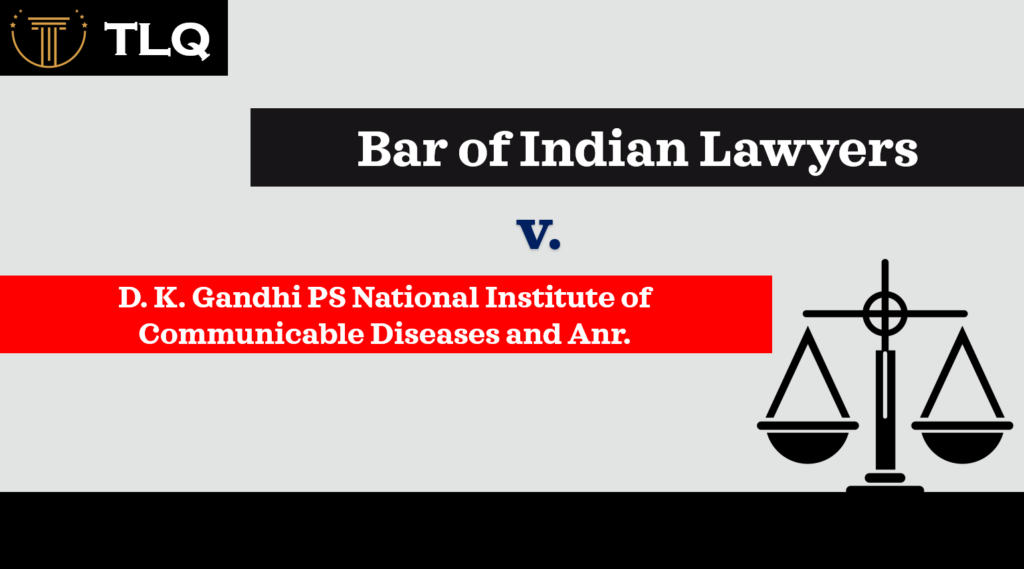Published On: 7th August, 2024

ABSTRACT
This article explores the concept of Alternative Dispute Resolution (ADR) with a particular focus on consumer rights in arbitration. It explains the different methods of ADR, highlighting the benefits of arbitration such as cost-effectiveness, speed, and confidentiality. However, the article also raises concerns about forced arbitration clauses embedded in contracts, which can limit consumer choice and restrict access to legal protections.The article examines key Supreme Court decisions in India (Hemalatha Devi & Ors. v. B. Udayasri I and Emaar MGF Land Ltd. v. Aftab Singh) that emphasize consumer choice in dispute resolution. Consumers have the right to choose consumer courts over arbitration, even if a pre-dispute arbitration agreement exists.Consumer Arbitration is a procedure whereby disputes between a Business and its Customers are submitted to an impartial third party for resolution.Consumers are the backbone of any economy, and protecting their rights is crucial.The article concludes by advocating for a level playing field in consumer protection. It proposes a federal law that eliminates forced arbitration clauses, empowering consumers to choose between arbitration and court proceedings when disputes arise.
INTRODUCTION
The term Alternative Dispute Resolution (ADR) encompasses a variety of methods for settling disputes outside of the courtroom’s formalities. By using this method, parties try to resolve their issues in private in front of an unbiased expert from outside the parties.
Similar to a court ruling, the decision is enforceable against the parties. An other process for settling legal issues is arbitration, in which two parties come before an arbitrator or panel of arbitrators and state their respective positions.
After determining the rules and weighing the evidence and contentions of both sides, the arbitrator renders a decision on the dispute. Companies often embed arbitration clauses in contracts, terms of service, or during online account creation. These clauses mandate arbitration as the sole method for resolving disputes. Consumers, eager to access products and services, often unknowingly agree to these clauses, unknowingly waiving their right to a jury trial and potentially important legal protections.
There are four main alternative dispute resolution (ADR) processes: arbitration, mediation, negotiation, and conciliation.
- Arbitration:There are many similarities between this procedure and court setup. There are hearings, evidence, a judge—referred to as the “arbitrator”—and other things. However, it is a private mode of dispute settlement in which the parties select the judge and set the procedural guidelines.A impartial third party, known as an arbitrator, is chosen by the disputing parties to resolve their differences. The procedure is quite adaptable, and parties have the option to forego certain technical components of court proceedings. The Arbitral Tribunal’s ruling, known as a “Award,” has the same legal force and effect as a court decree. It is also important to note that the Arbitration and Conciliation Act, 1996 governs arbitration in India.
- Mediation: This process also involves a neutral third party, referred to as the mediator, whose role is to facilitate discussions between the parties. Instead of rendering a judgement, the mediator assists the disputing parties in reaching a consensus or resolving their differences. The result of the mediation process typically takes the shape of a legally binding contract between the parties.
- Conciliation: Arbitration and mediation are two different processes from conciliation. A conciliator, like an arbitrator, is an impartial third person chosen by the parties to help them settle their differences. A conciliator can offer suggestions for resolving the conflict, but they are not able to issue an award. The parties are free to reject these suggestions; they are not obligated to do so. A settlement agreement is subsequently created from the agreement struck by the parties. It is also important to note that the Arbitration and Conciliation Act, of 1996, governs conciliation in India.
- Negotiation: the least formal kind of conflict settlement, in which the parties discuss the issue amongst themselves. The parties are free to negotiate a resolution to their differences without the involvement of a third party.
Here are a few of the advantages that ADR offer:
- These processes are less time-consuming and allow the parties to resolve their disputes quickly and effectively. • The parties have the autonomy to decide on the procedural aspects of the mechanism, making it convenient. • These processes are cost-effective, and the parties can decide the fee of the neutral third party.
- The parties engage in conversation and hear each other’s issues straight. Even in the event that one party loses, this aids the parties in preserving their future commercial relationships.
- The process can remain private between the parties.
- For more effective conflict resolution and adjudication, the parties may choose to designate subject-matter experts.
- Since alternative dispute resolution (ADR) helps avoid protracted litigation, it would ease courtroom congestion.
Provisions under the (Indian) Arbitration and Conciliation Act pertaining to the procedure of arbitration
Section 7- Arbitration Agreement:
(1) In this Part, “arbitration agreement” means an agreement by the parties to submit to arbitration all or certain disputes which have arisen or which may arise between them in respect of a defined legal relationship, whether contractual or not.
(2) An arbitration agreement may be in the form of an arbitration clause in a contract or in the form of a separate agreement.
(3) An arbitration agreement shall be in writing.
(4) An arbitration agreement is in writing if it is contained in—
(a) a document signed by the parties;
(b) an exchange of letters, telex, telegrams or other means of telecommunication which provide a record of the agreement; or
(c) An exchange of statements of claim and defence in which the existence of the agreement is alleged by one party and not denied by the other.
(5) The reference in a contract to a document containing an arbitration clause constitutes an arbitration agreement if the contract is in writing and the reference is such as to make that arbitration clause part of the contract.
Section 8 of the Arbitration and Conciliation Act strengthens the use of arbitration agreements. When a dispute arises and a valid arbitration agreement exists between the parties, the judicial authority is obligated to refer the matter to arbitration, upon request by either party or a related person. This applies even if a court order or judgment already exists. This provision, introduced in the 2015 amendment, expands the scope of arbitration and reflects its growing importance in resolving commercial disputes efficiently.
Key Requirements and Considerations
To invoke Section 8, certain conditions must be met. There must be a valid arbitration agreement in place, and the dispute must fall within its scope. A party seeking arbitration must notify the court about the arbitration agreement before submitting their first substantive statement on the dispute. The Supreme Court has clarified that this “first statement” differs from a formal written statement. Additionally, the party invoking arbitration should ideally file the original arbitration agreement or a certified copy with their application.
Exceptions and Judicial Discretion
The judicial authority has limited discretion to reject an application under Section 8. This might occur if a party appears to have waived their right to arbitration by waiting too long, if adequate relief through arbitration seems unlikely, or if the underlying contract is deemed invalid.
In the case of P.Anand Gajapathi Raju and Ors vs. P.V.G Raju and Ors[MANU/SC/028/2000] (AIR 2000 SC 1886) (( 2000 ) 4 SCC 539) ([ 2000 ] 2 SCR 684)
the Supreme court held that
- Between the parties, there must be an arbitration agreement or clause;
- A party to the arbitration agreement files a case against the other party before the judicial authority;
- The arbitration agreement’s subject matter and the case’s subject matter must coincide;
- Before the parties submit their initial statement regarding the content of the dispute, the defendant or any other relevant party moves the court to request a referral of the parties to arbitration.
Safeguarding Rights During Arbitration: Interim Orders under Section 9
Section 9 empowers parties involved in arbitration to seek interim reliefs from the court at various stages. These stages include:
Before initiating arbitration proceedings: This provision addresses situations where urgent action is needed before the arbitration tribunal is even formed.
During arbitration: Parties can request interim measures while the arbitration is ongoing.
After the award but before enforcement: This caters to scenarios where a delay might occur in enforcing the arbitral award.
Purpose and Scope of Interim Orders
The core purpose of Section 9 is to protect the parties’ rights during the gap between invoking arbitration and the tribunal’s establishment. This ensures that potential delays don’t cause undue hardship.
The Act acknowledges that arbitration primarily falls under the arbitral tribunal’s purview. However, it recognizes the need for judicial intervention in certain circumstances. Section 9(1) outlines the various categories of interim measures a court can grant:
Preserving Assets: The court can order interim custody or sale of goods related to the dispute.
Securing Disputed Funds: Interim measures can be granted to safeguard the disputed amount.
Property Access for Evidence Gathering: In property disputes undergoing arbitration, the court may authorize entry onto the property to collect samples or conduct necessary inspections.
Interim Injunctions: The court can grant injunctions upon establishing a prima facie case, considering the balance of convenience and potential irreparable harm. Additionally, the appointment of a receiver to manage disputed property might be authorized.
Other Protections: The court holds discretionary power under Section 9(1)(e) to grant other interim measures deemed just and convenient, with the same authority as in regular court proceedings.
A significant point established in the Supreme Court case Sundaram Finance Ltd vs. NEPC India Ltd (1999) is that invoking the arbitration clause to the other party before seeking interim relief under Section 9 isn’t mandatory. However, the court must first be satisfied about a valid arbitration agreement and the applicant’s genuine intention to pursue arbitration. Only then can the court exercise its jurisdiction to grant interim orders.
According to Section 10 of The Arbitration and Conciliation Act, 1996, the parties may designate an even or odd number of arbitrators; if they are unable to agree upon a number, the tribunal will be composed of a single arbitrator. This is an obligatory clause in the Act, and neither the parties may negate it.
Appointing Arbitrators: A Streamlined Process
Section 11 outlines the process for appointing arbitrators in an arbitration agreement.
Party Autonomy: Parties have the flexibility to agree on the number of arbitrators (odd number) and their nationality, unless otherwise specified. They can also establish a custom appointment procedure.
Default Procedure (Three Arbitrators): If parties fail to reach an agreement, a standard procedure applies:
- Each party appoints one arbitrator.
- The two appointed arbitrators jointly select a presiding third arbitrator.
Role of Arbitral Institutions: The Supreme Court and High Courts can designate arbitral institutions to manage appointments if no agreement exists. These institutions consider factors like qualifications, disclosure statements, and impartiality when selecting arbitrators.
Time Limits and Dispute Resolution: Specific time frames are outlined for each step in the appointment process. If deadlines are missed or disputes arise, the designated arbitral institution intervenes to make the necessary appointments.
International Considerations: In multinational disputes involving a sole or third arbitrator, the designated institution may appoint someone from a neutral nationality.
Court Involvement: While courts generally don’t participate in arbitrator selection, they can review an application to confirm the existence of a valid arbitration agreement and the dispute’s arbitrability (Duro Felguera v Gangavaram Port Ltd., 2017). However, courts cannot assess the enforceability of the arbitration clause itself (Garware Wall Ropes Ltd. v Coastal Marine Constructions & Engg Ltd., 2019).
Fee Determination: Arbitral institutions determine the arbitrators’ fees based on the Act’s Fourth Schedule. However, exceptions exist for international non-commercial arbitration, where parties can agree on fees following the tribunal’s rules.
Voluntary vs. Forced Arbitration
Voluntary arbitration allows both parties to a dispute to mutually agree to have a neutral third-party, called an arbitrator, settle their disagreement. This offers a potentially faster and less costly alternative to litigation.
Forced arbitration, however, presents a different scenario. Here, companies embed clauses within contracts, often in fine print, requiring consumers or employees to waive their right to sue and submit any future disputes to binding arbitration. This means consumers are forced to relinquish their right to a jury trial and potentially critical legal protections.
The Prevalence of Forced Arbitration
Forced arbitration clauses are becoming increasingly common across various industries, including employment, insurance, housing, and financial services. Often hidden in lengthy contracts, many consumers unknowingly agree to these clauses, effectively giving away their right to a fair legal process.
The Disadvantages of Forced Arbitration
- Limited Options: Forced arbitration restricts a consumer’s ability to seek legal recourse. Unlike a lawsuit, consumers cannot participate in class actions, a powerful tool for holding companies accountable for widespread wrongdoing.
- Unfair Advantage for Companies: Arbitration clauses are often drafted to favor the company. They may specify pre-selected arbitration firms that tend to rule in favor of businesses. Additionally, unlike judges in court, arbitrators are not bound by legal precedent, potentially weakening consumer protections.
- Lack of Transparency: Arbitration proceedings are generally closed to the public, hindering scrutiny of corporate practices. This lack of transparency allows companies to potentially avoid accountability for defective products or unethical business practices.
- Hidden Costs: While often touted as a cost-saving measure, arbitration can be expensive for consumers. Individuals may face filing fees and travel expenses associated with the arbitration process. Moreover, the losing party, typically the consumer, may be responsible for the company’s legal fees.
Consumer Choice in Dispute Resolution: A Look at the Indian Supreme Court’s Decision
An arbitration agreement is created when two parties sign a contract and stipulate in writing that any disagreements that may arise between them regarding the terms of that contract will have to be settled out of court with the help of an impartial third party: the arbitrator, a third party chosen by both parties who will serve as a judge and whose ruling will be legally binding.
In the case of Rukmanibai Gupta v. Collector, Jabalpur (1980) 4 SCC 556(AIR 1981 SC 479) (MANU / SC / 0002 / 1980) the Supreme Court held that as per the arbitration agreement the dispute will refer to the arbitration and the decision of the arbitrator would be final and binding.
Also, in the case of M. Dayanand Reddy v. A.P. Industrial Infrastructure Corpn. Ltd. (1993) 3 SCC 137(AIR 1993 SC 2268) (MANU / SC / 0337 / 1993) ([ 1993 ] 2 SCR 62)
The Supreme Court upheld the ruling in the Rukmanibai Gupta case (previous). Regarding the unique features of an arbitration agreement, the Court further noted in the aforementioned case that an arbitration agreement is a contract between the parties stating that, in the event of a disagreement, the matter will be resolved by an arbitrator chosen by the Court, an umpire chosen by them, or both.
The Supreme Court has also noted that it must be determined if the case’s facts and circumstances provide a clear determination of the existence of an agreement to submit the dispute to arbitration. This in turn is dependent upon the parties’ intentions as shown by pertinent papers and contextual information.
The Indian Supreme Court’s recent decision in M. Hemalatha Devi & Ors. v. B. Udayasri I (Hemalatha) has significant implications for consumer rights in dispute resolution. The court reaffirmed the principle that consumer disputes can only be settled through arbitration if the consumer explicitly chooses this option after the dispute arises. Pre-existing arbitration agreements hold no weight in such scenarios.
This decision builds on the precedent set in Emaar MGF Land Ltd. v. Aftab Singh (Emaar), which established that consumers cannot be compelled to enter arbitration under Section 8(1) of the Arbitration Act if they prefer seeking redress through consumer courts established under the Consumer Protection Act (CPA) of 2019.
Key Takeaways from Hemalatha
- Consumer Choice Takes Precedence: Consumers have the right to choose between pursuing remedies under the CPA or opting for arbitration. An existing arbitration clause cannot override this right.
- Consumer Courts Offer Specialized Protections: Unlike arbitration tribunals, consumer courts can provide broader remedies, including imposing penalties for non-compliance with their orders.
- Public Interest Considerations: The inherent privacy of arbitration may not be suitable for disputes involving potentially hazardous goods or services, as these matters have public interest implications.
The Rationale Behind Consumer Choice
The court emphasizes the power imbalance inherent in standard-form contracts, where consumers are often pressured into agreeing to arbitration clauses as a precondition for obtaining goods or services. Granting consumers the option to approach consumer courts after a dispute arises helps counterbalance these unequal bargaining positions. This ensures consumers are not bound by agreements they might have entered into under duress or without the leverage to negotiate fairer terms.
Aligning with International Trends
Hemalatha’s emphasis on consumer choice aligns with approaches taken in various jurisdictions. Some courts internationally recognize pre-dispute arbitration agreements as binding only if entered into independently, without making access to goods or services contingent on the consumer’s consent to arbitrate.
Potential Disadvantages of Consumer Arbitration for Consumers
- Limited Consumer Choice: Consumers rarely have the option to opt-out of arbitration clauses. They are often presented with a “take-it-or-leave-it” proposition.
- Power Imbalance: Businesses typically have more resources to hire experienced arbitration attorneys, creating an uneven playing field for consumers.
- Limited Discovery: Discovery, the process of exchanging information before a trial, is often restricted in arbitration. This can hinder a consumer’s ability to gather evidence in their case.
- High Costs: Arbitration can be expensive for consumers, with filing fees and potential arbitrator costs. This can be a deterrent to pursuing legitimate claims, especially for smaller disputes.
- Limited Review and Appeal: Arbitration decisions are generally final with very limited review by courts. This can leave consumers without recourse if they believe the arbitrator made a mistake.
- Class Action Waivers: Many arbitration clauses prevent consumers from joining or filing class-action lawsuits. This weakens their collective bargaining power and ability to hold companies accountable for widespread issues.
The Fight for Consumer Rights
Consumer advocates and some lawmakers have pushed back against the prevalence of mandatory arbitration clauses. Some states have enacted laws restricting or banning them in certain contexts. Additionally, the Consumer Financial Protection Bureau (CFPB) adopted a rule in 2017 that prohibited the use of mandatory arbitration clauses in many financial products and services. However, this rule was later revoked.
Leveling the Playing Field: Why Arbitration Clauses Need a Fix
The future of consumer arbitration remains uncertain. While it offers streamlined dispute resolution, concerns about fairness for consumers cannot be ignored. Continued efforts are needed to ensure that consumer rights are protected and that arbitration is a fair and balanced option for resolving disputes.
Imagine you buy a new phone, excited about its features. Buried deep within the contract’s legalese is a clause you might miss: pre-dispute arbitration. This fancy term means if a problem arises with the phone, you can’t sue the company in court. Instead, you’re stuck in a process called arbitration, where a private arbitrator decides the outcome.
Here’s the rub: Unlike judges, arbitrators don’t always follow the law. Their decisions are often final, and the whole process can be secretive. This means companies’ potential wrongdoings, like faulty products, might never see the light of day.
So, what’s the solution? We need a federal law that makes arbitration truly voluntary. By removing these pre-dispute clauses, consumers and workers gain a choice. If a dispute happens, they can decide between court and arbitration. This levels the playing field, giving you a voice if a company does you wrong.
CONCLUSION
The current system of forced arbitration disadvantages consumers. Companies embed clauses in contracts, limiting consumer options and potentially weakening legal protections. Landmark court decisions have affirmed consumer choice, allowing consumers to pursue remedies in consumer courts despite pre-existing arbitration agreements.
To ensure fairness and empower consumers, a federal law mandating truly voluntary arbitration is necessary. This eliminates forced arbitration clauses, granting consumers the right to choose the most appropriate forum (court or arbitration) to resolve disputes. This levels the playing field and strengthens consumer rights.
REFERENCE(S):
ARBITRATION OF CONSUMER COMPLAINTS – a CASEBOOK | Office of Justice Programs. (n.d.). https://www.ojp.gov/ncjrs/virtual-library/abstracts/arbitration-consumer-complaints-casebook
Sebastian, S., & Law, L. (2023, October 18). Consumer Disputes are Non-Arbitrable, Consumers can’t be compelled into arbitration : Supreme Court. Live Law. https://www.livelaw.in/supreme-court/consumer-disputes-are-non-arbitrable-consumers-cant-be-compelled-into-arbitration-supreme-court-240433
Nishith Desai Associates Testaments on Arbitrability of Consumer Disputes: Part I – India. (n.d.). https://www.nishithdesai.com/NewsDetails/12821
Arbitration – NACA. (n.d.). NACA. https://www.consumeradvocates.org/for-consumers/arbitration/
Fair Arbitration Now. (2019, July 26). Arbitration should be fair, not forced – Fair Arbitration Now. https://fairarbitrationnow.org/
Dalmia, V. P. (2023, October 10). Law of Arbitration in India & Alternative Dispute Resolution. Lexology. https://www.lexology.com/library/detail.aspx?g=c74be5b9-f8c1-4d5a-ae87-936d0ca6de8b




